What to Eat Everyday for a Healthy Diet? Eat a variety of fruits, vegetables, lean proteins, and whole grains daily. Stay hydrated and limit processed foods.
A balanced diet is crucial for maintaining overall health and well-being. Consuming a diverse array of nutrient-rich foods ensures your body gets essential vitamins and minerals. Fruits and vegetables provide antioxidants that protect against diseases. Lean proteins like chicken, fish, and legumes support muscle growth and repair.
Whole grains offer sustained energy and improve digestion. Drinking plenty of water keeps you hydrated and aids in bodily functions. Limiting processed foods reduces the intake of unhealthy fats, sugars, and preservatives. By making mindful food choices every day, you can support long-term health and prevent chronic diseases.
Introduction To A Nutrient-rich Diet
What to Eat Everyday for a Healthy Diet? Eating a nutrient-rich diet keeps your body healthy and strong. It helps you feel energetic and focused. This guide will teach you what to eat every day for a healthy diet.
The Importance Of Balanced Eating
A balanced diet includes a variety of foods. Each food group provides different nutrients. These nutrients are essential for growth, energy, and overall health. A balanced diet helps maintain a healthy weight. It reduces the risk of chronic diseases like diabetes and heart disease.
Here are the key components of a balanced diet:
- Fruits and vegetables
- Whole grains
- Protein sources such as meat, fish, and beans
- Dairy products
- Healthy fats
Key Nutrients For Daily Intake
| Nutrient | Sources | Benefits |
|---|---|---|
| Protein | Meat, fish, beans, nuts | Builds and repairs tissues |
| Carbohydrates | Whole grains, fruits, vegetables | Provides energy |
| Fats | Avocado, nuts, olive oil | Supports cell growth |
| Vitamins | Fruits, vegetables, dairy | Boosts immune system |
| Minerals | Meat, dairy, nuts | Strengthens bones and teeth |
| Water | Water, fruits, vegetables | Keeps you hydrated |
Ensure you get these nutrients daily. They keep your body functioning well.
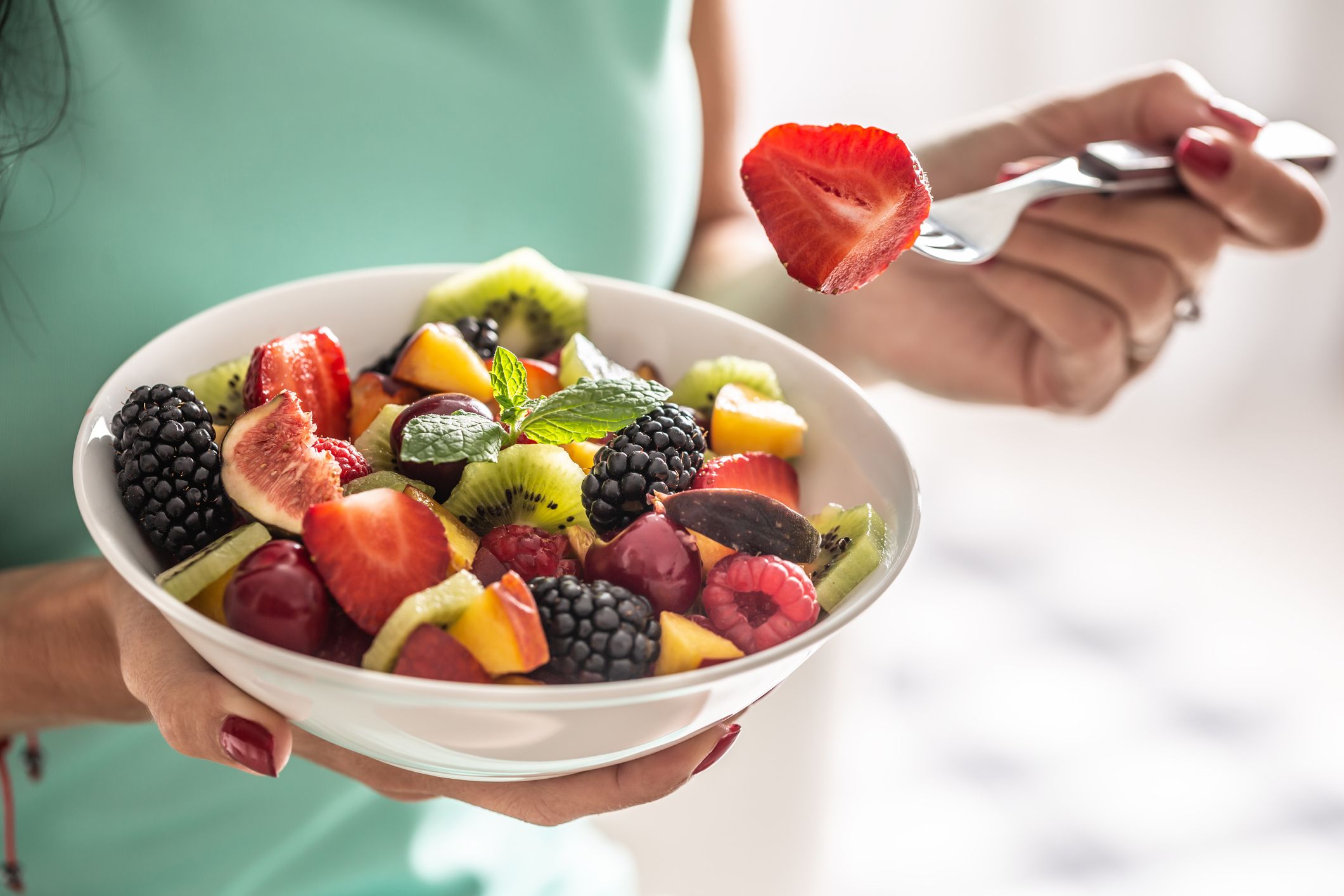
Credit: www.goodhousekeeping.com
Fruits: Nature’s Sweet Treats
What to Eat Everyday for a Healthy Diet? Fruits are delicious and packed with nutrients. They are perfect for a healthy diet. Fruits provide essential vitamins, minerals, and fiber. They also offer natural sweetness, making them a healthier choice.
Top Fruits For Daily Consumption
| Fruit | Benefits |
|---|---|
| Apples | Rich in fiber, good for digestion |
| Bananas | High in potassium, great for energy |
| Oranges | Loaded with vitamin C, boosts immunity |
| Berries | Full of antioxidants, good for skin |
| Grapes | Rich in vitamins, good for heart |
Benefits Of A Fruity Diet
- Boosts Immunity: Fruits like oranges and strawberries are rich in vitamin C.
- Improves Digestion: Apples and pears are high in fiber.
- Provides Energy: Bananas and grapes give a quick energy boost.
- Enhances Skin Health: Berries contain antioxidants for glowing skin.
- Supports Heart Health: Grapes and berries are good for the heart.
Eating fruits every day is simple and beneficial. Choose a variety of fruits for the best results. Make fruits a part of your daily diet for a healthier life.
Vegetables: The Fiber Powerhouses
What to Eat Everyday for a Healthy Diet? Eating vegetables daily is vital for a healthy diet. They are rich in fiber, vitamins, and minerals. Fiber aids digestion and keeps you full longer. Including a variety of vegetables ensures you get a range of nutrients. Let’s explore the benefits of green leafy veggies and colorful vegetables.
Green, Leafy Veggies For Health
Green, leafy vegetables are nutrient-dense. They provide essential vitamins and minerals. These veggies are low in calories but high in fiber.
| Vegetable | Key Nutrients | Benefits |
|---|---|---|
| Spinach | Iron, Calcium, Vitamin K | Boosts blood health and bone strength |
| Kale | Vitamin C, Vitamin A, Fiber | Supports immunity and vision |
| Swiss Chard | Magnesium, Vitamin E, Fiber | Enhances muscle and nerve function |
Colorful Vegetables For A Nutrient Boost
Colorful vegetables are rich in antioxidants and phytochemicals. These compounds fight inflammation and protect against diseases. Eating a variety of colors ensures a wide range of nutrients.
- Carrots: High in beta-carotene, supports eye health.
- Bell Peppers: Rich in Vitamin C, boosts the immune system.
- Beets: Full of folate and manganese, supports heart health.
- Tomatoes: Packed with lycopene, protects against cancer.
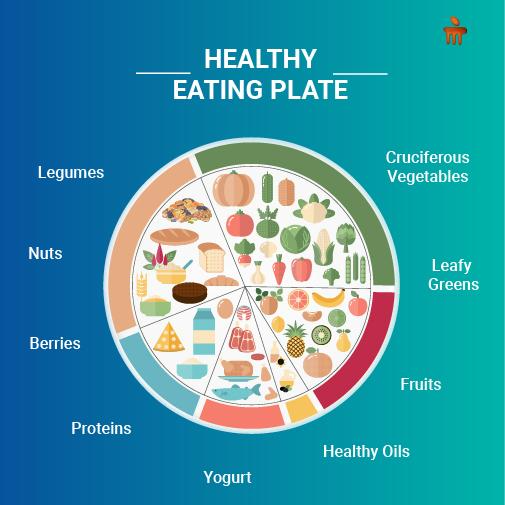
Credit: www.manipalhospitals.com
Whole Grains: The Energy Suppliers
Whole grains are essential for a healthy diet. They provide lasting energy and are packed with nutrients. Including whole grains in your daily meals can improve overall health. They are rich in fiber, vitamins, and minerals.
Best Whole Grains For Everyday Meals
- Oats: Perfect for breakfast. Oats are rich in fiber and protein.
- Quinoa: A complete protein source. It is versatile and easy to cook.
- Brown Rice: A great side dish. Brown rice is full of vitamins and minerals.
- Whole Wheat: Ideal for bread and pasta. Whole wheat provides sustained energy.
- Barley: Excellent in soups and stews. Barley helps in lowering cholesterol.
The Role Of Grains In Digestion
Whole grains play a crucial role in digestion. They are high in fiber, which aids in maintaining regular bowel movements. Fiber also helps in preventing constipation and promoting gut health. Consuming whole grains can enhance the growth of good bacteria in the gut.
| Whole Grain | Benefits |
|---|---|
| Oats | Improves heart health, provides lasting energy |
| Quinoa | Complete protein, supports muscle growth |
| Brown Rice | Rich in vitamins, aids digestion |
| Whole Wheat | Provides sustained energy, supports metabolism |
| Barley | Lowers cholesterol, improves gut health |
Proteins: Building Blocks Of The Body
Proteins are essential for our health. They help repair and build tissues. They are vital for muscle growth and function. Proteins also play a role in producing enzymes and hormones. Eating enough protein daily is key to staying healthy.
Animal Vs. Plant-based Proteins
What to Eat Everyday for a Healthy Diet? Proteins come from both animal and plant sources. Animal proteins include meat, fish, eggs, and dairy. They contain all essential amino acids. These proteins are called complete proteins.
Plant-based proteins come from beans, nuts, seeds, and grains. Most plant proteins are incomplete. They may lack one or more essential amino acids. Combining different plant foods can make a complete protein.
| Animal Proteins | Plant Proteins |
|---|---|
| Chicken | Beans |
| Fish | Lentils |
| Eggs | Nuts |
| Milk | Seeds |
Ideal Daily Protein Sources
Eating a variety of protein sources is important. Here are some ideal daily protein sources:
- Chicken breast: Lean and high in protein.
- Salmon: Rich in omega-3 fatty acids.
- Eggs: Versatile and packed with nutrients.
- Greek yogurt: Probiotic-rich and high in protein.
- Quinoa: Complete protein and gluten-free.
- Chickpeas: Fiber-rich and versatile.
- Almonds: Great for snacking and protein boost.
Eating these foods will help maintain your health. It is important to balance your diet with both animal and plant proteins. This way, you get all the essential nutrients.
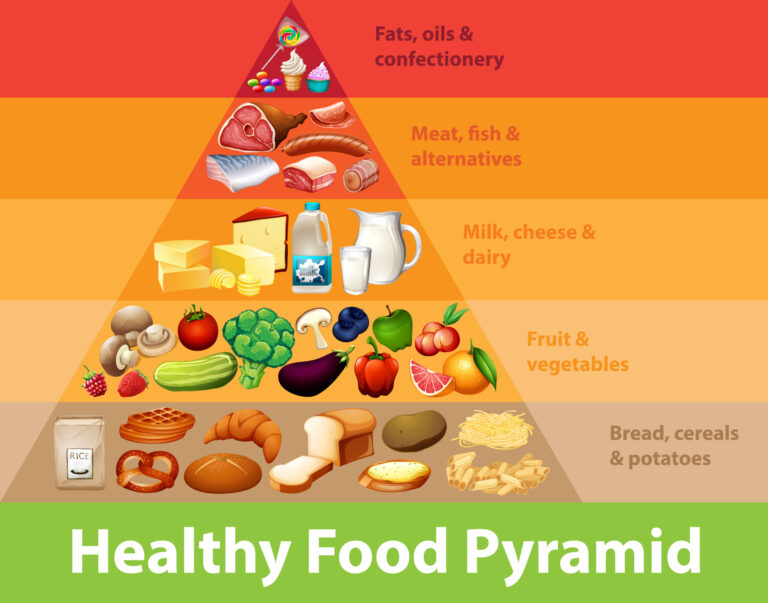
Credit: mychn.org
Fats: The Good, The Bad, And The Necessary
What to Eat Everyday for a Healthy Diet? Fats play an important role in our diet. They provide energy and support cell growth. But not all fats are equal. Knowing which fats to include and which to avoid can make a big difference in your health.
Healthy Fats For Daily Diet
Healthy fats are crucial for brain function and heart health. They also help absorb vitamins. Some of the best sources of healthy fats include:
- Avocados: Rich in monounsaturated fats and fiber.
- Nuts: Almonds, walnuts, and pecans offer healthy fats.
- Seeds: Chia seeds and flaxseeds are great options.
- Olive oil: Contains heart-healthy monounsaturated fats.
- Fatty fish: Salmon and mackerel provide omega-3 fatty acids.
Fats To Avoid For Optimum Health
Some fats can harm your health. These include trans fats and excessive saturated fats. Avoiding these fats can lower your risk of heart disease and other health issues. Here are some fats to avoid:
- Trans fats: Found in fried foods and baked goods.
- Hydrogenated oils: Present in margarine and shortening.
- Excessive saturated fats: Found in red meat and full-fat dairy.
Limiting these fats can lead to better overall health. Opt for healthier choices and feel the difference.
| Good Fats | Sources |
|---|---|
| Monounsaturated Fats | Avocados, Olive Oil, Nuts |
| Polyunsaturated Fats | Fatty Fish, Seeds |
Dairy And Alternatives: Calcium And More
Calcium is crucial for strong bones and teeth. Dairy products are rich in calcium. They also provide protein, vitamins, and minerals. Some people cannot consume dairy. Thankfully, there are alternatives. Let’s explore how to include these in your diet.
Choosing The Right Dairy
Choose dairy products that are low in fat. They provide essential nutrients without extra calories. Here are some examples:
| Dairy Product | Benefits |
|---|---|
| Milk | Rich in calcium and vitamin D |
| Yogurt | Contains probiotics for gut health |
| Cheese | Good source of protein |
Incorporate these dairy products into your daily meals. Add milk to your breakfast cereal. Enjoy yogurt as a snack. Use cheese in your sandwiches. These simple changes can boost your calcium intake.
Lactose-free Options For The Daily Diet
Many people are lactose intolerant. They cannot digest lactose, a sugar in milk. Lactose-free options are available for them. Here are some:
- Almond milk: Low in calories, fortified with calcium
- Soy milk: High in protein, fortified with vitamins
- Coconut milk: Good for cooking, creamy texture
These alternatives provide similar benefits to dairy. They help you get enough calcium and other nutrients. You can use them in smoothies, coffee, and recipes. Try different options to find what you like best.
Including dairy or its alternatives ensures you get enough calcium. This is vital for maintaining strong bones and overall health.
Hydration: The Essence Of Life
Staying hydrated is key to a healthy diet. Our bodies are made mostly of water. We need water to function well. It helps in digestion, circulation, and temperature regulation. Drinking enough water daily is essential for good health.
Water Intake Recommendations
Experts suggest drinking at least eight 8-ounce glasses of water daily. This is known as the “8×8 rule.” Some people need more water based on activity level and climate. Children may need less, while athletes might need more.
Hydrating Foods And Their Benefits
Eating hydrating foods can boost your water intake. Many fruits and vegetables have high water content. Here are some hydrating foods and their benefits:
| Food | Water Content | Benefits |
|---|---|---|
| Cucumber | 95% | Low in calories, high in vitamins |
| Watermelon | 92% | Rich in vitamins A and C |
| Strawberries | 91% | High in antioxidants |
| Oranges | 86% | Boosts immune system |
| Spinach | 91% | Loaded with iron and magnesium |
- Cucumber: Keeps you full and refreshed.
- Watermelon: Perfect for hydration and sweet cravings.
- Strawberries: Great for snacks and smoothies.
- Oranges: Ideal for a vitamin C boost.
- Spinach: Excellent for salads and smoothies.
Including these foods in your diet helps you stay hydrated. They provide essential nutrients too. Hydration supports overall health and well-being. Remember, drinking water and eating hydrating foods is essential. Stay hydrated for a healthy life.
Putting It All Together: Meal Planning
Creating a balanced meal plan doesn’t have to be complicated. With a few tips and tricks, you can enjoy healthy eating every day. Let’s dive into how to plan meals that nourish your body.
Creating A Balanced Meal Plan
Start by thinking about all food groups. Each meal should include:
- Proteins
- Vegetables
- Fruits
- Whole grains
- Dairy or alternatives
Here is a simple table to help you plan:
| Meal | Proteins | Vegetables | Fruits | Whole Grains | Dairy |
|---|---|---|---|---|---|
| Breakfast | Eggs | Spinach | Banana | Oats | Yogurt |
| Lunch | Chicken | Broccoli | Apple | Quinoa | Cheese |
| Dinner | Fish | Carrots | Berries | Brown Rice | Milk |
Tips For Healthy Eating Every Day
Here are some simple tips:
- Eat a variety of foods: Different foods provide different nutrients.
- Stay hydrated: Drink plenty of water.
- Limit sugar and salt: Choose natural options.
- Control portions: Don’t overeat.
- Plan ahead: Prepare meals in advance.
Enjoying a healthy diet is easy with a little planning. Remember to keep your meals balanced and varied.
Frequently Asked Questions
What Can I Eat Every Day To Be Healthy?
Eat fruits, vegetables, whole grains, lean proteins, and healthy fats daily. Drink plenty of water. Avoid processed foods.
What Is The Best Diet For Daily Routine?
The best daily diet includes balanced portions of fruits, vegetables, lean proteins, whole grains, and healthy fats. Drink plenty of water. Limit processed foods, sugar, and excessive salt. Aim for nutrient-dense meals to support overall health.
What Should A Healthy Daily Diet Consist Of?
A healthy daily diet includes fruits, vegetables, whole grains, lean proteins, and healthy fats. Drink plenty of water. Limit sugar and salt.
What Are The 10 Healthiest Foods To Eat Everyday?
The 10 healthiest foods to eat every day are spinach, blueberries, almonds, quinoa, salmon, sweet potatoes, Greek yogurt, broccoli, avocados, and apples.
Conclusion
Achieving a healthy diet is simpler with mindful daily choices. Focus on whole foods, lean proteins, and fresh vegetables. Stay hydrated and limit processed foods. Small changes can lead to significant health benefits. Embrace these habits for long-term wellness and vitality.
Prioritize nutrition to enjoy a healthier, happier life.
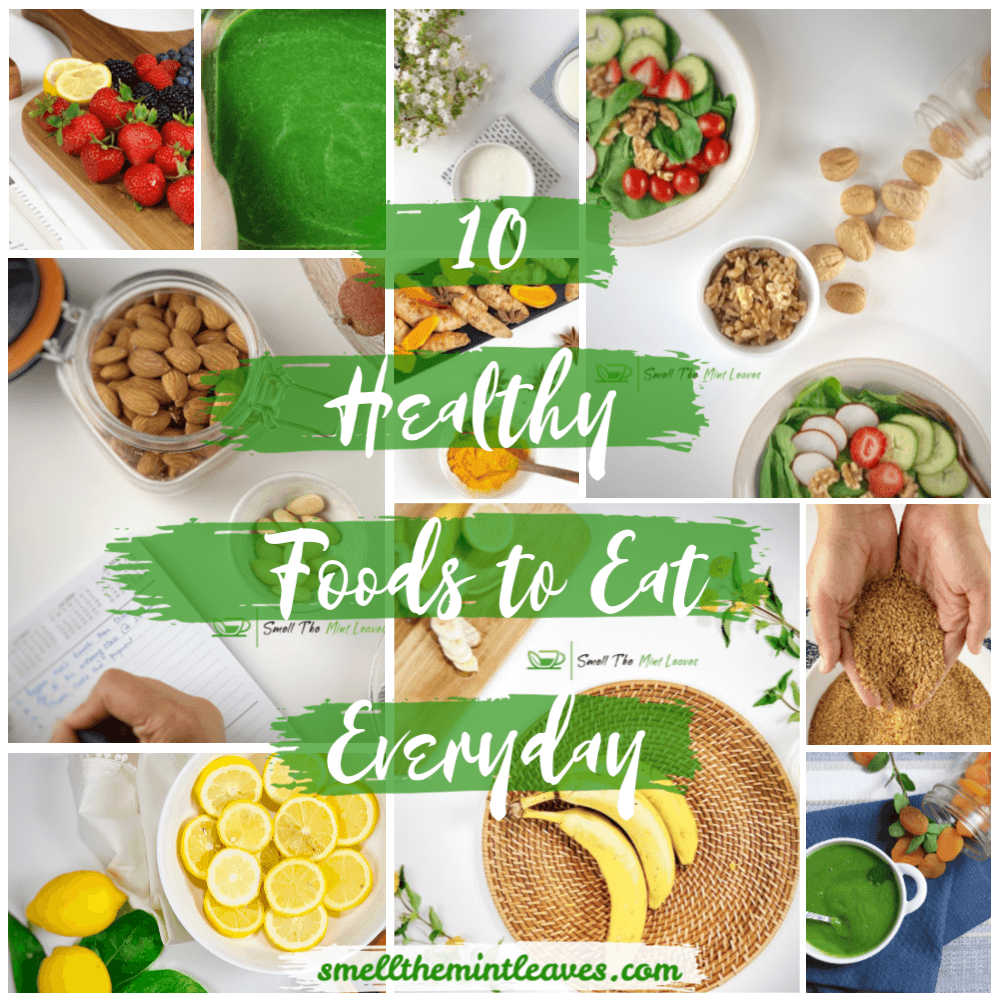


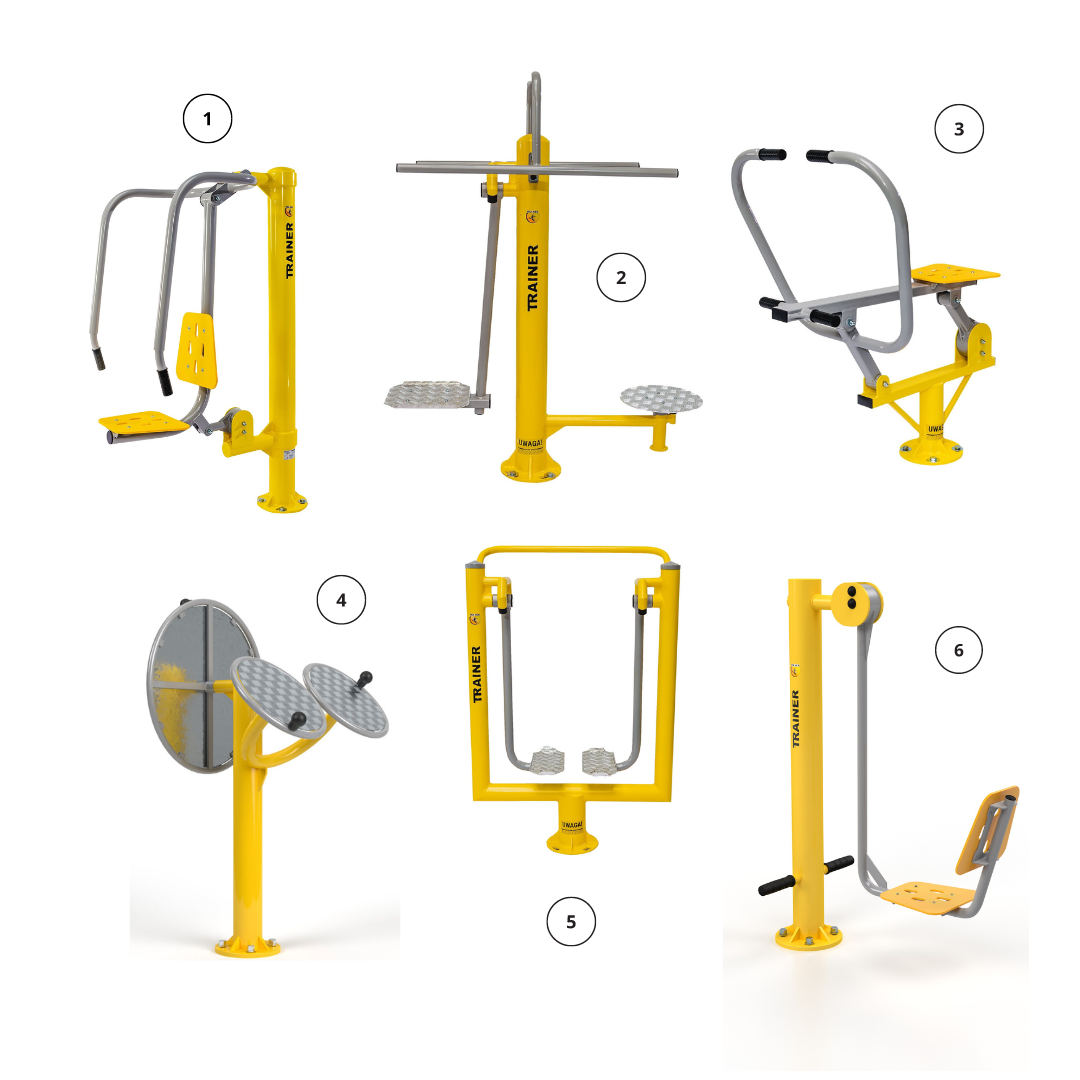
Leave a Reply